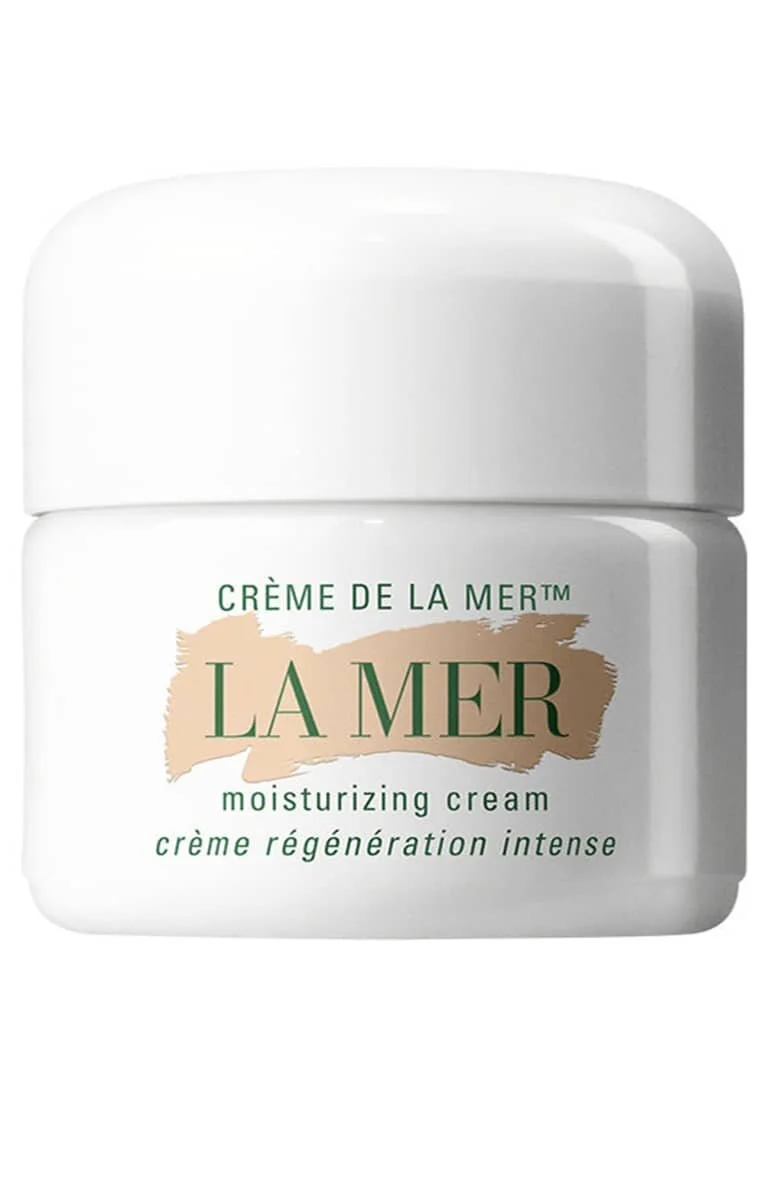Recently, I’ve had many discussions surrounding the word “dupe” and, like most topics, this isn’t a cut-and-dry, 30-second, sound byte conversation.
A commonly accepted definition for “dupe” is a cheaper version of a high-end product, but I have some beef with that. So let’s dig in.
What’s a Dupe?
Dupe is short for duplicate. For example, my favorite lipstick was discontinued, so I had to find a dupe. It doesn’t have to do with price! It can, but the point is to find a near-perfect match. The website Temptalia, for example, has an entire section of crowd-sourced dupes so you can find matches for practically any makeup product at all price ranges.
Here’s What Happened…
I had an exchange with and influencer concerning Nivea Moisturizer as a dupe for Creme de la Mer. She is reviewing both products side-by-side and stated in her Instagram story that Nivea was basically the same thing as La Mer. As a former La Mer employee who received that question all the time, I offered my two cents.
Normally, I keep my mouth shut because I doubt influencers care about my opinion, and I don’t think they’ll even see my DM. But I actually thought about it and came back to her story because when I have acute knowledge of something, I feel a responsibility to ensure that thing or person is properly represented. So I spoke up.
Now, remember I’m a PR and marketing professional by trade, so I’m constantly thinking about the business side of things, and I looked at it this way…
The Influencer Marketing Game
Let’s say this lifestyle influencer tells her 834k Instagram followers that this is product is a “dupe” for La Mer even though it’s not (more on that below). So then she gives them her swipe-up link to Amazon for the current list price of $7.99. If 50k followers purchase Nivea thinking it’s a La Mer dupe, and she makes 1% commission on those Nivea tubs (which is likely much higher, but Amazon affiliate marketing is another topic) she’s making around $4,000.
So frankly, it’s not in her best interest to tell the full story since her audience most likely won’t go for a high-end moisturizer, she won’t link it nor make a profit. That’s not a knock at all, it’s how the business works, it’s smart, and it’s completely understandable.
What I’m more frustrated by - and I’ve battled this when I worked for La Mer - is the tone that The Estee Lauder Companies would willingly jack up the price on something that you could buy from Amazon for seven bucks. I’m not saying there isn’t inflation, there is, but in this particular case there’s a reason La Mer costs more than Nivea despite similar ingredients.
That said, there’s an aspect of consumer responsibility in play, meaning you should never blindly follow anyone without doing your own research. This just happens to be a perfect example because this influencer’s position is Nivea and La Mer are the same based on ingredients. My position - as a trained professional - is they are different based on formulation.
In other words, I’m saying while grape juice and wine are both the product of the same ingredient - grapes - we all know there’s a massive difference between grape juice and wine. Between Steak-umm and a Ruth’s Chis steak. Between apple sauce and apple cider. They’re different.
Eventually we reached her real question: what should you use if you can’t afford La Mer?
The REAL Question
Like nearly every question in the beauty space, the answer is: it depends. La Mer, like everything else, isn’t for everyone whether or not they can afford it. And. That’s. Okay. We don’t all have to agree or like or use the same things!
And to briefly answer that question…
If you’re interested in La Mer’s intense moisturizing effects, my favorite hydrators are Weleda’s Skin Food, Embryolisse, or Lano Face Base Vitamin E Day Cream.
If you want La Mer’s ability to turn over skin, I’d work with a dermatologist or esthetician, but using some form of retinol can help. I like Sunday Riley Luna Night Sleeping Oil or Drunk Elephant A-Passioni.
And if you want La Mer’s healing properties, this is where it gets expensive because you can’t fake it. I love May Lindstrom’s Blue Cocoon, many products by SkinCeuticals, and I’ve heard the Vitner’s Daugher Active Botanical Serum is excellent just to name a few.
The Issue
There’s an animosity towards high-end beauty products. I’ve experienced it first-hand for over a decade. I’m not firmly in one camp or the other, but here’s what I know:
I never wore department store makeup until my 20s, and even then, it wasn’t until I worked at a makeup counter that I saw the value in high-end products.
If you want a cheap thrill or a trendy eye shadow shade, the drug store wins every time. If you want good, solid makeup and skincare, you will find them at Wal-Mart and Target. NYX Cosmetics, Neutrogena and L’Oreal have some of my favorite products. Maybelline Falsies mascara is one of the best. I used Oil of Olay right up until I started using La Mer. There’s nothing wrong with drugstore products.
Here’s why you pay more for department store items. You get to touch and feel and usually take home your product to try before you buy, so you’ll get the perfect foundation shade or eye cream. You’ll learn product benefits and, this is important, how the product works best from trained experts. Brands host “gift with purchase” specials. The ingredients are typically better quality. It costs a lot to fund all of that, so that’s factored into the higher product price.
For example, you only need a pea-sized amount of La Mer that should be warmed up before pressing it into skin. If you just take a dollop and slather it on your face, it will act as a protective barrier like Aquaphor or, yes, Nivea cream, but the active ingredients won’t work. Further, the “fragrance” is denatured rosewater, not a synthetic fragrance, which you wouldn’t know by reading the ingredients alone. I know this because I was trained by the guy who trains JLo’s La Mer salespeople. Also, I know La Mer works because, other than personal experience, client after client would show me how La Mer took years off their faces or healed their cuts, scrapes or burns.
At the end of the day, department store items aren’t necessarily better. Like when it comes to mascara, it’s practically the same formula. And La Mer is not, at all, the best product on the market. I don’t care where a product comes from or how much it costs, I will defend a product’s efficacy or lack thereof.
The Solution
When I edit someone’s makeup bag, the first thing I ask is, “What’s your budget?” I don’t care if you have $50 or $15,000 a year to spend on makeup and skincare, you’ll get a plan that works for you.
It would be a disservice, however, to insinuate that you’re getting a premium product when you’re not. And that has nothing to do with price. I believe $5 NYX Cosmetics Butter Gloss is superior to $22 Charlotte Tilbury or $55 Tom Ford lip glosses. Likewise, I don’t think there’s a better concealer for dry skin and dark circles than a $27 tube of IT Cosmetics Bye Bye Under Eye.
I can give you this information because I’m a trained makeup artist with over 10 years of experience and I literally study this stuff every day. My only agenda is to make sure you feel your best. That’s it. I’m not trying to sell you products for personal gain - at my expense - so I’ll have more credibility when I tell you something does or does not work.
Speaking of my expense, I don’t purchase products specifically to try them. I get as many samples as possible, but I simply don’t have the budget to test products outside of the ones I buy for my own use. Which is the reason I don’t purchase many drugstore products - I can’t try them before I buy, I can’t speak to a trained rep, and sometimes I can’t return the item if I don’t like it. Further, many drugstore items aren’t factory sealed for safety. I don’t care if a product is $12.99 versus $22.99 - the extra $10 is worth it for the convenience of purchasing a product I’ll love and use versus a one-off that deteriorates at the bottom of my makeup bag.
Do your own research. Follow lots of people with different opinions to find a general consensus. Look for influencers who are actually product ambassadors - they’re neutral and honest - and see if they’re selling something. Just because someone’s getting paid to hawk a product doesn’t mean they’re being dishonest, but check out influencers who specialize like Mel Thompson or Shonagh Scott who consistently give honest reviews and always disclose their compensation status.
One Last Point
Yes, I use La Mer. Yes, it’s expensive. But you don’t know me or my financial situation, and to judge that based on the moisturizer I use is wrong. We all make choices on how to spend our incomes, so I feel a responsibility to tell you a product is good based on its efficacy, not the price. And I’m not going to tell you to buy something so I profit from that product when I know you’re better suited with something else. Period.
For Your Enjoyment…
Here are screenshots of the DM exchange for your viewing pleasure:





